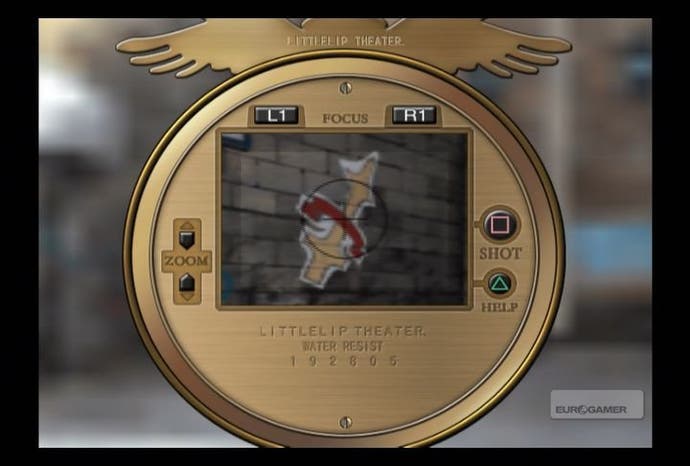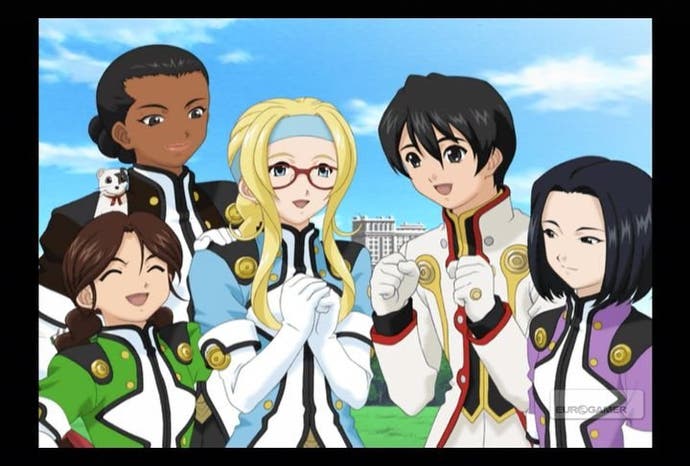Sakura Wars: So Long, My Love
Mecha critic.
As you might expect from the team behind the exceptional Valkyria Chronicles, Sakura Wars' turn-based mech combat is as robust as the robots' appealingly chunky design. There's a single gauge for moving and firing, with options to defend and heal if you've got enough segments to spare. You can also sacrifice a healthy chunk of the bar to raise your SP meter for more elaborate attacks. Overworks introduces environmental obstacles, multiple-area combat zones and new objectives each time to keep the action fresh, from tightly enclosed back-streets in rain-swept Harlem to a rooftop battle where cannons must be disabled so team-mates can fly to new areas.
There's a remarkable array of tactical options at any given point, with three distinct battle styles offering boosts to attack or healing power,or increased movement at the expense of other attributes. Players can call upon distant allies to instantly join them, helpful for the joint attacks whose power depends on the friendship level of the two adjacent characters. It might sound overwhelming, but the initial battles are pitched at a low level of difficulty, allowing players to experiment with different strategies before things get significantly tougher in the fourth chapter. Thoughtfully, a suspend save option is included which can be utilised at any point; useful during the later battles, which can take upwards of half an hour to complete.

Aptly, given the Revue's theatrical background, encounters are introduced with an eye for the grandiose. The Little Lip Theatre doubles as a Tracy Island-esque hideout, with a two-block-wide catapult rising from the basement to launch an airship from which the mechanised team fly into battle. This sense of drama extends to the special moves, each introduced with a lengthy animated sequence, though thankfully all are skippable after the first viewing. Indeed, exploratory sequences aside, there's plenty of presentational pizzazz, with well-drawn characters and decent (albeit infrequent) anime cut-scenes, while steam-powered dialogue boxes whistle and hiss as they slide onto the screen with a pleasing clunk.
More importantly, the stories - while typically Japanese in their mix of high melodrama, glutinous sentiment and bizarre, often extraneous, asides - are interesting, touching upon themes few western games dare approach, and offering a few genuine surprises along the way. The characters are certainly a pretty unique mix, from a hard-bitten lawyer struggling to forget her tough upbringing to a terminally ill bird-lover pondering her fate as the Revue tackles Hamlet.
It's a solid translation all round, with some surprisingly fruity dialogue sprinkled among the Big Important Themes and stirring battle speeches. Voice acting is above average, with only the curiously-accented and annoying shrill youngster Rosita letting the side down. Even she has her moments, her naive exuberance exemplified by her shout of "I'm so happy, I could crappy!"

It's very difficult to dislike a game that can get away with a line of dialogue like that, or one which forces the protagonist to create a female stage persona called Peppermint: his unlikely stagecraft winning Shinjiro several male admirers, much to his embarrassment. If Sakura Wars' character interactions aren't perhaps as meaningful or involving as Persona's school days, it still provides the same sense of satisfaction in a team pulling together for a noble cause.
One minute you're walking in on a girl getting changed, the next you're chatting with Louis Armstrong in a Harlem jazz bar, then you're defending New York from marauding insects disguised as birds. Sakura Wars: So Long My Love might be one of the most unlikely western releases of recent years, but the very fact that an English language version of such a niche title exists at all is cause for some cheer.
